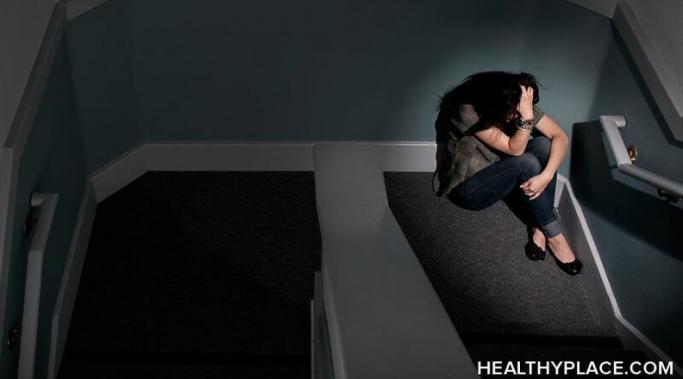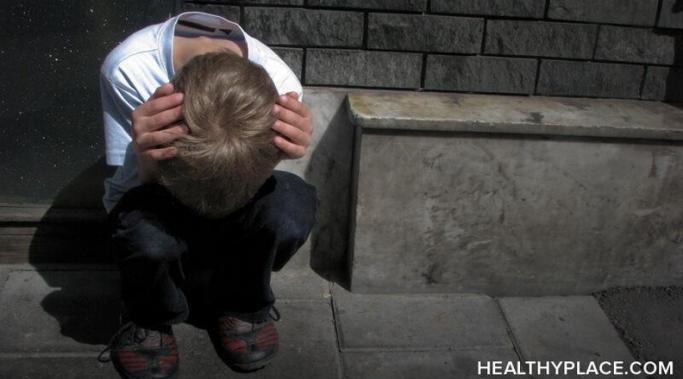There's nothing new under the sun.
Or so I've been told. And while nothing new may exist, we sure learn about new things all the time. People do lament that our understanding of bipolar disorder and other mental illnesses is too lacking, but each year we learn more about the human brain and mental illness.
Here then are top ten things we learned this year about mental illness.
Depression – Breaking Bipolar
Recently, someone who was new to the world of bipolar disorder asked me if there was a cure for bipolar disorder or if he had to live like this forever. I had to, of course, tell him there is no cure. I felt like I was telling him his dog was about to die. I felt like knowing this, he might give up.
Sex is a basic human drive. We want to eat. We want to sleep. And we want to have sex. These are the things that bring us pleasure in life. Almost everything boils down to those three things.
But unfortunately, bipolar disorder and bipolar medication can affect all three. Bipolar disorder and its associated medication can make you eat. Or make you not eat. It can make you sleep. Or it can make you not sleep. And it can affect your sex life the same way.
But for some reason, doctors often take the effect on your sex life least seriously.
Last week I wrote about how fighting bipolar disorder is like fighting an invisible enemy. And I suggested that creating an internal visual of an "enemy" was a helpful way of differentiating the sick person from the illness itself.
I think stigma is similar. We can let stigma, or thoughts thereof, get into our heads. We can start to believe the ignorant judgements of others and we can let stigma bring us down.
But we don't have to. We can fight.
And while stigma is often something one feels, sometimes it is something one can see too. Like in print. Like in The Daily Athenaeum piece on depression that I wrote about on Monday.
It was chock-a-block with ideas of stigma. But I chose not to believe it and instead I chose to fight.
I'm not a person who takes on a cause de jour - I simply have too much self-preservation for that. I have enough going on without worrying about the plights of the world.
However, when someone tries to spread mistruths and tries to silence my voice, then I start to get peeved.
Case in point. Recently, the West Virginia University's school paper, The Daily Athenaeum, printed an article about lifestyle factors and depression. And while I have no problem with that subject, the things they said therein were wrong and inexcusable.
And when they tried to silence my criticism of that article, I got peeved. I will not allow the voice of mental illness to be ignored simply because someone doesn't like what we have to say.
I've been having a really hard time. Immobilized with depression. Frozen in time and agony. The pain of blinking keeping me weeping sporadically throughout the day.
And so today I am angry. Oh sure, I'm depressed too, but I'm also largely angry. I'm hateful. I hate everything from people to stoplights to walking to moving my eyeballs. I'm just angry that I'm alive.
But I have chosen this anger. I have chosen the anger over the depression because it is more useful. It's better to hate everything because hate comes with energy, depression does not.
"Life is pain, highness. Anyone who says differently is selling something." ~The Princess Bride
Life is pain. Or, at least, it can be. I've found that during severe episodes every breath, is, in fact, pain. There is nothing else. Just pain or unconsciousness. I prefer unconsciousness.
I have spent many months of my life with an inability to feel pleasure - this is known as anhedonia. This means that no matter what happened, no matter how great it was, I couldn't feel happy about it. I couldn't feel happy at all. However, there is something I have learned about anhedonia, even without an ability to be happy, I can be thankful.
There is a popular misconception that depression is the same thing as sadness. I understand why you might think this if you don't have experience with depression. Depression is sad; it's true. But depression is a lot of other things as well. It's a whole new echelon of sadness. It's sadness 2.0.
This morning is a good example - I woke up depressed and the experience is nothing like sadness.
Recently, a man I have come to respect and care about attempted suicide. I am grateful he is still here to tell the tale. His suicide note was online and his pain was so evident it tore at my soul.
I was tremendously relieved to hear his friends had rescued him in time to save him. But I was then left with the problem as to what to say to this man. The last thing in the world I wanted to do was make the situation any more difficult for him.
What do you do when someone you care about just attempted suicide?



